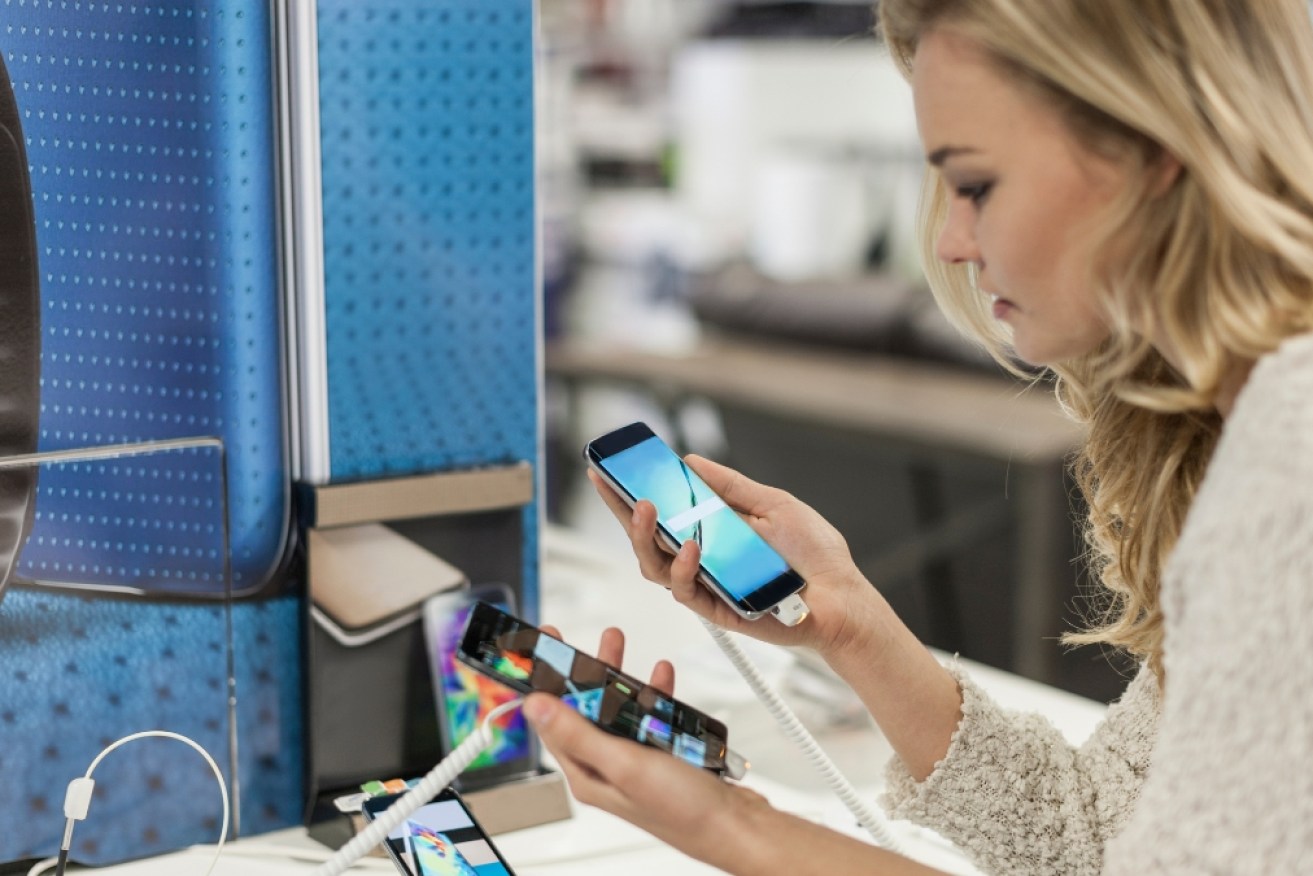‘Hold out’ for major upgrades: Many buy a new phone every two years


Think twice before you swap your phone for a newer model. Photo: Getty
The cost of living might be biting, but the race to have the latest tech is still on, with millions of Australians regularly updating their phone models.
More than one in four Australians get a new mobile phone every two years or less, according to research by financial comparison site Finder.
Some Australians are splashing out even more frequently, with 7 per cent changing their phone every year, and 2 per cent admitting to waiting just six months before getting their next phone.
Regular phone upgrades are costly, and experts say you might not get much bang for your buck.
Style over substance
Mariam Gabaji, Finder telco expert, said regular phone upgrades can be a costly exercise with limited pay off.
“It’s easy to be tempted by a new phone launch, but consider what features you’re actually getting with your upgrade,” she said.
“For the average phone user, the difference between the two most recent models is often minimal.
“If you can hold out and wait a few models between upgrades you’ll notice a big difference between your new and old phone and save yourself thousands of dollars in the process.”
Ritesh Chugh, Central Queensland University associate professor in information and communication technologies, said although most brands release a new model annually, the biggest changes from one year to the next tend to be visual instead of functional.
Although some consumers are willing and able to splurge to stay on trend, others are willing to wait for more significant upgrades.
“Perhaps smartphone manufacturers have reached an innovation plateau,” he said.
“Small, incremental changes that we are seeing each [year] are not necessarily sufficient enough to motivate customers to go and buy every year.”
What to look for in a new phone
Finder’s data shows more than two-thirds of Australians cited performance issues as the main reason for their last phone upgrade.
This may be by the manufacturer’s design; Dr Chugh said phones are deliberately created to become obsolete quickly, which makes it costly and difficult to fix.
“Smartphone manufacturers call this ‘planned obsolescence’,” he said.
Leading companies like Apple and Samsung have begun rolling out DIY repair parts and tools internationally, but many of these services are not yet available in Australia.
If you’re not looking to pay for a costly repair, or you need a new phone for another reason, Dr Chugh said it’s important to think about how you’ll be using the device.
“When choosing a new phone, [people] need to consider … several factors, which [include] the overall cost [and] their own usage of the phone,” he said.
“For example, if you have to look at the screen size, what are you using the phone for? If you’re watching a lot of videos, you need a bigger screen.”
He said other factors to consider can include:
- Hardware and software specifications
- Camera capabilities
- Storage capacity
- Visual appeal.
Ms Gabaji said Australians should shop around when looking for their next phone.
“Buying outright will be cheaper in the long run, but if the thought of dropping over $1000 in one go is a bit daunting, compare your options when it comes to buying on a plan.”
Consider the environment
If you have the funds, it might seem all too easy to regularly switch out your phone for newer models.
But like pretty much everything else, your choices could have a significant impact on the environment.
The international waste electrical and electronic equipment (WEEE) forum found, globally, 5.3 billion mobile phones would become waste in 2022.
Many phones are hoarded, kept in people’s homes despite no longer being in use; in 2020, it was estimated 26 million unused mobile phones were stored in homes across Australia, and about four million of these are unusable.
If your current phone is still in good working order and hasn’t fallen too far behind the newer models in functionality, Dr Chugh said you should think twice before upgrading.
“It’s essential to make informed choices that not only align with our personal needs, but also … consider the environmental impact,” he said.
“Buying a new phone is obviously a conscious decision … [Consider] the contribution to e-waste and perhaps just adopting a responsible approach towards planet Earth.”

















